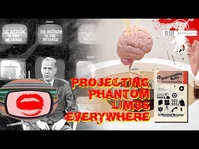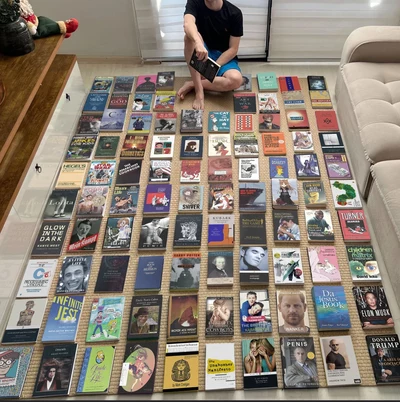- 4
- 16
Get this washed up frick some cocaine already
- 5
- 28
If you would all pause fighting for a moment and pay attention to me, I have an annoucment to make: My book is available for pre-order. If you or someone you love has tried and failed to get control over alcohol, this book is for you: https://t.co/51Y10eiMVT
— Katie Herzog (@kittypurrzog) February 3, 2025
- 5
- 30
I got it used so he didn't get any money, this is why my life is already over.
- 15
- 48
- 1
- 11
One of the most  characters I can imagine:
characters I can imagine:
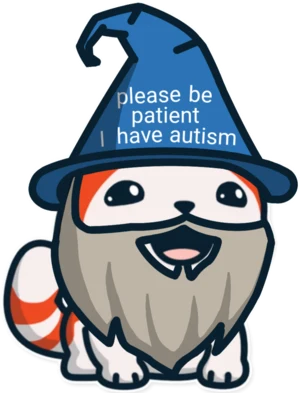
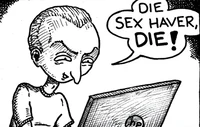


 then has a mental breakdown
then has a mental breakdown 
!incels required reading. There's a (very well done) online reading by the author if you're a  .
.
- 1
- 11
i dunno if yall do comics
but i need to find a conan the barbarian book
its like...about conan time traveling to the modern(?)day and meeting a  and fighting off some evil thing
and fighting off some evil thing
i swear to god it was real and on the kindle app but i cant find it 
anyone know what comic this was???
- 36
- 35
- 3
- 11
Beloved ASOIAF audiobook narrator Roy Dotrice passed away before GRRM could get WoW out. RIP 
But now, using preview chapters from The Winds of Winter and the power of 11labs voice cloning, Roy Dotrice can narrate book 6 from beyond the grave!
if you haven't read the Forsaken sample chapter it's pretty sick. shame we'll never get the book because it gets me hyped 
- 10
- 14
bottom text.
I haven't used audible that much, and now I have 8 Audible credits accumulated and I need to expend them before canceling my membership or they disappear back into Bezos' pockets 
Please recommend me
Literary Fiction/novels
Classics
Sci-Fi (more obscure or newer stuff is better, I have read a lot of the popular classic scifi)
Well written histories/historical biographies
K thx. Also judge other people's recommendations
- 127
- 150
Brandon Sanderson
For those that don't know, Brandon Sanderson is a Mormon author that specializes in writing fantasy for people that believe video games are art. The Mormonism manifests itself as embarassing and clunky attempts at insults.
For example:
But don't worry. He doesn't need the crutch of Mormonism to help him write atrocities.
Sanderson started getting big in 2006 when not mentioning current-day issues in your writing wasn't considered violence. Because his early work was inoffensive, some of his fans had certain opinions and would be described as chud-adjacent today. We'll come back to them in a moment.
With success came the the desire to expand, and what better way to reach more people than making it more relatable™ and courting a "modern audience"! It started out subtle: a background character making comments about the same s*x, allegories about mental health and, eventually, an out-of-place political desire to install a modern democracy in a medieval fantasy world. It got progressively more obvious with each new book, but it clearly worked, because you can't go anywhere online to discuss fiction now without being bombarded with Sanderson recommendations.
And now a large chunk of his fan base looks like this
Wind and Truth
The most recent addition to the Sanderson Literary Universe was the 5th book in the Stormlight Archive series, Wind and Truth.
We're going to look at some 1-star reviews, which are mostly chuds dumb enough to have kept reading up until now.
Remember the excerpts from earlier? ALL his writing is like that. All 4 previous books in the series. These geniuses endured 4,546 pages of slop to get to this point
Goodreads Link. Sort by 1-star reviews. 2-stars are also funny, but it's mostly just people begging him to get another editor.
I will be honest, I cried
I didn't realize I was reading garbage until there was a gay character!

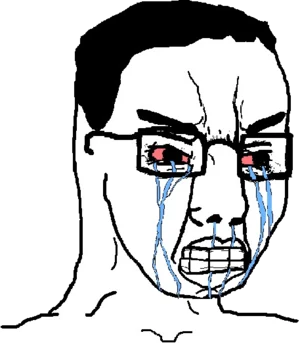
^ This is an actual quote 
This guy wrote a whole novel in protest
Can't read it? You're welcome!
It turns into an impassioned plea for Sanderson to renounce Mormonism in favour of mainstream Christianity, which is funny, but not actually worth reading.

I couldn't drug myself to sleep, so I used boring audiobooks

The best part of these 1-star reviewers pouring out their hearts (and some of them posting from accounts with face pics and real names) is that none of it meant anything. The book was well-received overall and will fund the next 5 books in the series! 
- 18
- 48
- 11
- 20
!bookworms to discuss the first chapter of Andrei Bely's "Petersburg".
An neurodivergent old tsarist statesman (and a cuck) has a difficult relationship with his incel son but takes too long to realize his son's commie friends might be into something. Vivid descriptions of what St Petersburg looked like during the 1905 Revolution.
Next week discussion to cover chapter 2.
- 6
- 27
For those upset over Dark Horse’s actions here…I respectfully point you to the words of a person who can express these things more eloquently than perhaps I can: https://t.co/QkMeXVYFBc pic.twitter.com/bkfp2gLz6U
— Valerie D'Orazio (@TheVallyD) January 25, 2025
- 29
- 40
To discuss your weekly readings of books, textbooks, and papers.
!bookworms I'm about to finish "Afgantsy" and already started with the first chapter of Andrei Bely's "Petersburg", the latter which will be the center of our book club discussion thread on Tuesday Jan 28th. Join our book club discussion if you're interested!
https://rdrama.net/h/lit/post/334655/rdrama-bookclub-next-pick-petersburg-by/7654072#context
@Aevann can you
 pls
pls
- 20
- 40
- 12
- 47
- 22
- 19
Attention !bookworms and !classics
Our next book club reading will be "Petersburg" by Russian author Andrei Bely.
Written between 1913-1916 and initially published on a serialized manner, the book covers the story of a young man who becomes involved with revolutionaries who tasked them with a job, to kill a high ranking tsarist official, his own father.
https://oceanofpdf.com/authors/andrei-bely/pdf-epub-petersburg-download/
Here's the free epub for you guys to download it.
The book consists of 8 chapters, so ideally we'll cover 1 per week but before committing to another failed bookclub I'll ask how many of you want to participate.
For those who're in, another option is to do one chapter on a bi-weekly basis. Let me know in the comments which one you prefer (one chapter per week or one chapter every two-weeks)
- 58
- 37
- 11
- 32
I'll start off by saying that the writing for this book is sometimes less-than-literary. But the fact that the author clearly didn't spend a lot of time in writing seminars is a good thing in all other respects
It's a memoir of an orphaned half-latinx/half-Korean kid with a junkie mom who ends up in the foster system at a real young age. His recollections of his childhood made me give my kids an extra hug, and he was one of the lucky ones since he didn't get r*ped (which is super common for foster kids).
He talks about growing up in the system, then finally getting adopted by a good family which eventually falls apart (twice). He joins the Chair Force (affectionate) and kicks butt but is still just a fricked up kid inside, and nearly drinks himself to death. He then goes to Yale on the GI bill and eventually Cambridge for his PHD on scholarship.
All his memoirs lead up to the final two chapters which deliver the crux of the book:
First that elite virtue signalling is (luxury beliefs) the new Venblen Good and that the trickle-down effects of this really hurt normal people
Second that a stable, loving, family is the most important thing you can provide a kid. More than money.
The most important thing for the chuds on this site is that it puts elite virtue signalling in terms that elites themselves cannot brush aside. He calls out that the things rich college kids support socially are not the way they actually live their lives. It's a great read, and definitely a very centrist take IMO. He reads the audiobook himself too, which is always a plus. !grillers !bookworms
- 8
- 15
- 32
- 47
Today we'll be reading a statement from beloved children's author Neil Gaiman, who seems to have done some raping. If you'd like, you can read a long article about the r*pes.
Over the past many months, I have watched the stories circulating the internet about me with horror and dismay. I've stayed quiet until now, both out of respect for the people who were sharing their stories and out of a desire not to draw even more attention to a lot of misinformation. I've always tried to be a private person, and felt increasingly that social media was the wrong place to talk about important personal matters. I've now reached the point where I feel that I should say something.
So far, so respectful. He's stayed silent up until now to let women speak. Surely he will respect their experiences 
As I read through this latest collection of accounts, there are moments I half-recognise and moments I don't, descriptions of things that happened sitting beside things that emphatically did not happen. I'm far from a perfect person, but I have never engaged in non-consensual sexual activity with anyone. Ever.

I went back to read the messages I exchanged with the women around and following the occasions that have subsequently been reported as being abusive. These messages read now as they did when I received them – of two people enjoying entirely consensual sexual relationships and wanting to see one another again. At the time I was in those relationships, they seemed positive and happy on both sides.
Let's compare this to the article: This past July, a British podcast produced by Tortoise Media broke the news that two women had accused Gaiman of sexual assault. Since then, more women have shared allegations of assault, coercion, and abuse. The podcast, Master, reported by Paul Caruana Galizia and Rachel Johnson, tells the stories of five of them.
At least five women have lied to the public! Why did they lie?
And I also realise, looking through them, years later, that I could have and should have done so much better. I was emotionally unavailable while being sexually available, self-focused and not as thoughtful as I could or should have been. I was obviously careless with people's hearts and feelings, and that's something that I really, deeply regret. It was selfish of me. I was caught up in my own story and I ignored other people's.
Because they wanted him to spend more quality time with them and were too immature to handle s*x of course!
I've spent some months now taking a long, hard look at who I have been and how I have made people feel.
Like most of us, I'm learning, and I'm trying to do the work needed, and I know that that's not an overnight process. I hope that with the help of good people, I'll continue to grow. I understand that not everyone will believe me or even care what I say but I'll be doing the work anyway, for myself, my family and the people I love. I will be doing my very best to deserve their trust, as well as the trust of my readers.
He'll do the work now, and everything will be ok 
At the same time, as I reflect on my past – and as I re-review everything that actually happened as opposed to what is being alleged – I don't accept there was any abuse. To repeat, I have never engaged in non-consensual sexual activity with anyone.
Factcheck: This claim has not been approved by experts.
Some of the horrible stories now being told simply never happened, while others have been so distorted from what actually took place that they bear no relationship to reality. I am prepared to take responsibility for any missteps I made. I'm not willing to turn my back on the truth, and I can't accept being described as someone I am not, and cannot and will not admit to doing things I didn't do.
Here's one of the stories he's denying:
On February 19, 2022, Gaiman and his son spent the night at a hotel in Auckland, which they sometimes did for fun. Gaiman asked Pavlovich if she could come by and watch the child for an hour so he could get a massage. It was a small room — one double bed, a television, and a bathroom. When he returned, Gaiman and the boy ate dinner, takeout from a nearby delicatessen. Afterward, Gaiman wanted to watch a movie, but the child wanted to play with the iPad. The boy sat against the wall by the picture window overlooking the city, facing the bed. Pavlovich perched on the edge of the mattress; Gaiman got onto the bed and pulled her so she was on her back. He lifted the covers up over them. She tried to signal to him with her eyes that he should stop. She mouthed, "What the frick are you doing?" She didn't want the child to overhear what she was saying. Gaiman ignored her. He rolled her onto her side, took off his pants, pulled off her skirt, and began to have s*x with her from behind while continuing to speak with his son. "'You should really get off the iPad,'" she recalls him saying. Pavlovich, in a state of shock, buried her head in the pillow. After about five minutes, Gaiman got up and walked to the bathroom, half-naked. He urinated on his hand and then returned to Pavlovich, frozen on the bed, and told her to "lick it off." He went back to the bathroom, naked from the waist down. "Before you leave," he told Pavlovich, "you have to finish your job." She went to the bathroom, and he pushed her to her knees. The door was open. (Gaiman's representatives say these allegations are "false, not to mention, deplorable.")









 that not everyone
that not everyone  should
should 





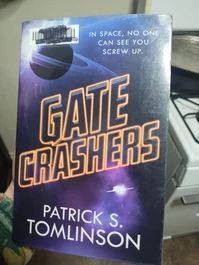


 Yes child
Yes child  I am going
I am going  to give a review
to give a review  to rdrama
to rdrama 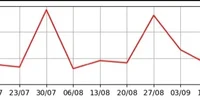 when I'm finished.
when I'm finished. 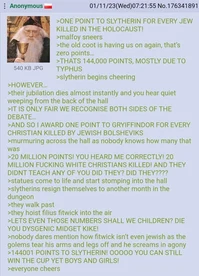





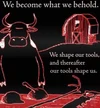
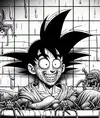








.webp?h=11)
 aweonao
aweonao








 "I waited 7 years to read this book. 7 years. And I am not going to finish it."
"I waited 7 years to read this book. 7 years. And I am not going to finish it."

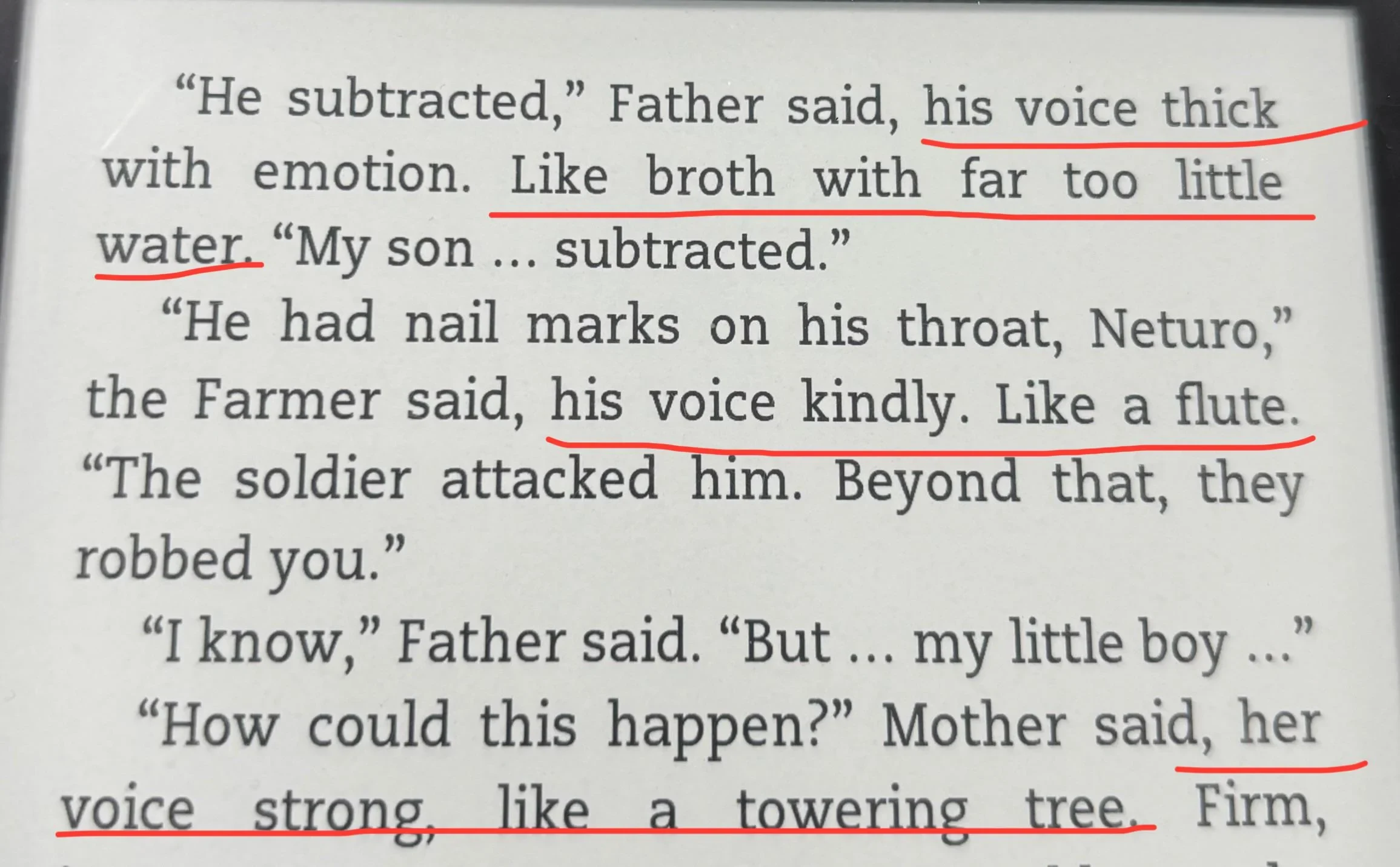






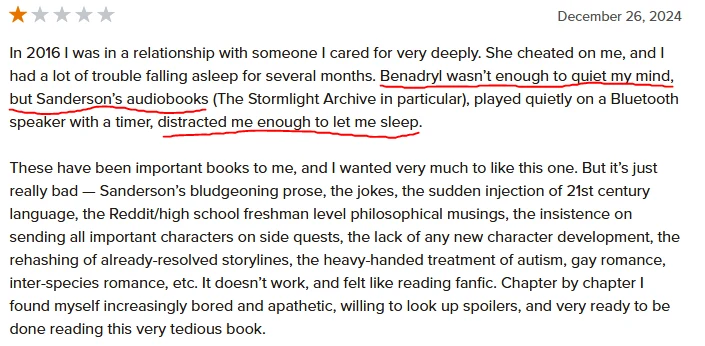
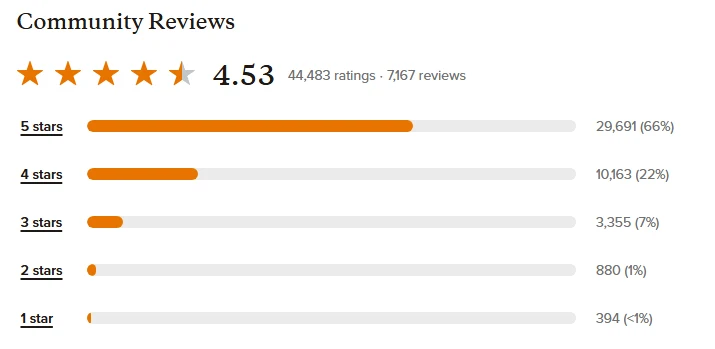




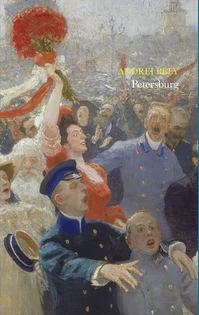













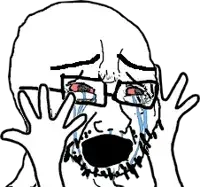 LITERALLY
LITERALLY 










